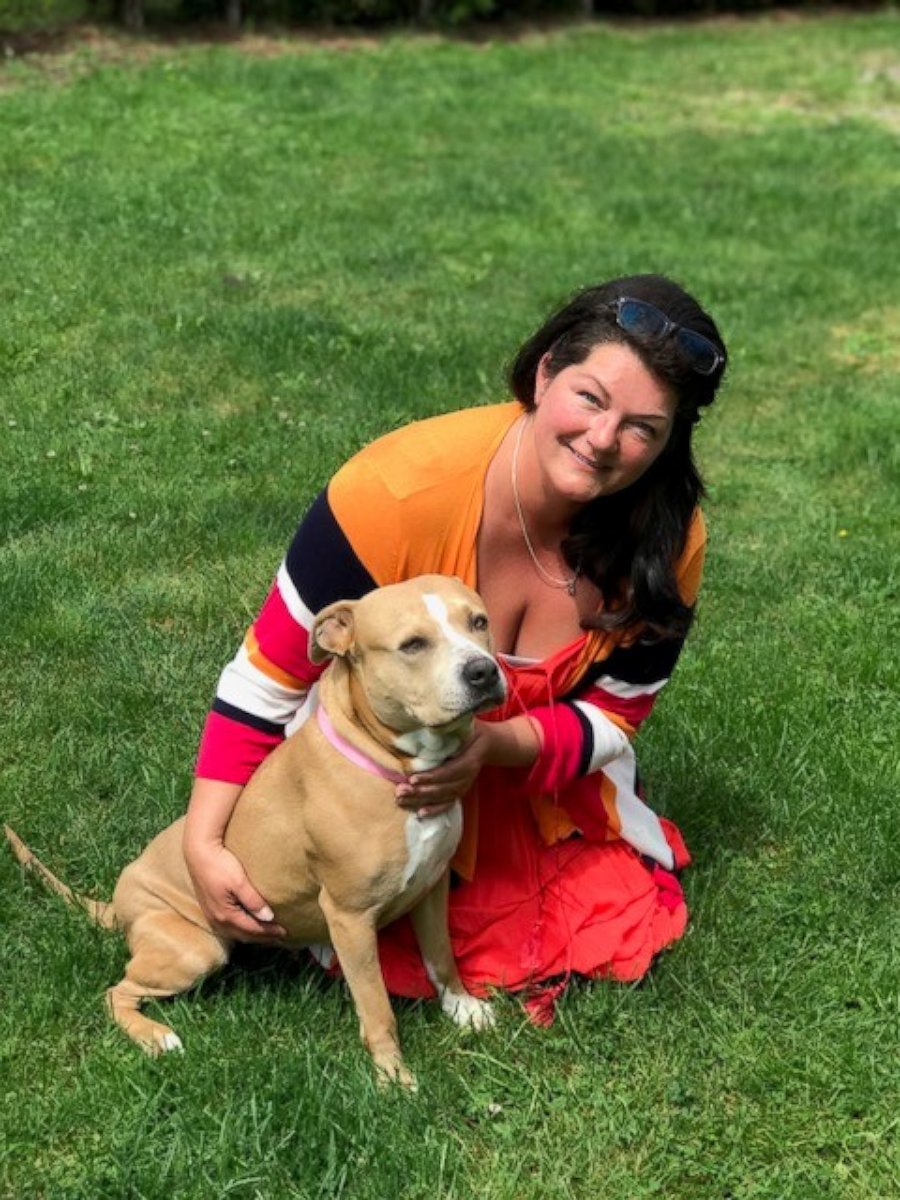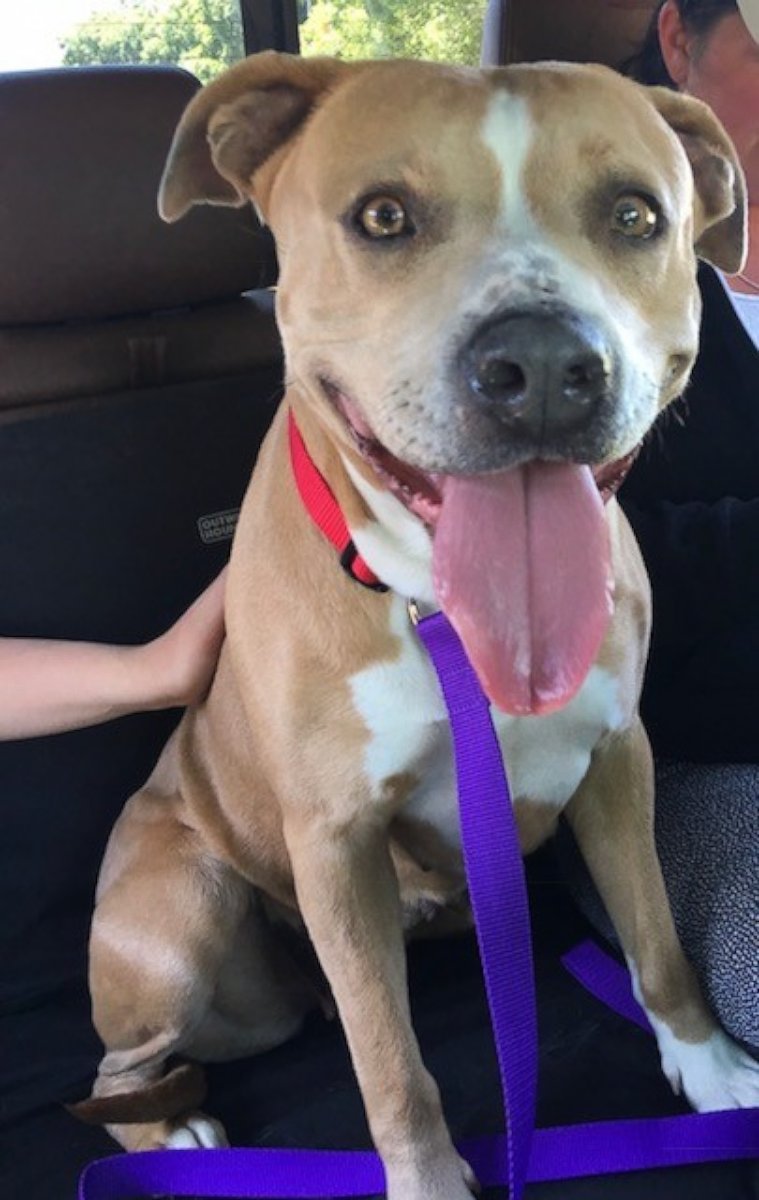Family drives 16 hours from Canada to Sacramento to adopt dog
Paula Power and her family adopted a 2-year-old pit bull they named Sophie.
— -- A family in British Columbia looking to adopt a rescue dog drove 16 hours to a shelter in California after learning from a border patrol official that the shelter was overcrowded.
Paula Power, of Chilliwack, British Columbia, had run out luck trying to adopt a rescue pit bull in her local area so she started looking for dogs in Washington state.
When she called the Canada Border Services Agency to find out the requirements for bringing a dog from the U.S. into Canada, the person she spoke with told her of a shelter in Sacramento that had dogs in need of adoption.

“She said you should really check out this shelter, they’re on Facebook and in an overcrowding crisis,” Power told ABC News. “It was so odd that she said that because usually they just give the information and that’s it.”
The Front Street Animal Shelter had recently posted a video announcing it was making adoptions free in June due to overcrowding.
“I saw the video on Facebook and that was all it took,” Power said. “My son was driving to visit me so I sent him and text and said, ‘You want to drive to Cali?’ and he replied, ‘What LOL.’”
Power’s son, Channing, 21, and her husband, Dan Marshall, and his 14-year-old daughter, Emma, all agreed to make the approximately 16-hour drive to Sacramento.
The family hopped in their truck and drove overnight, arriving in Sacramento the morning of June 3, about 20 minutes before the shelter opened.
The family looked at several dogs before being introduced by a shelter employee to a 2-year-old pit bull named Joyce.
“You could tell she was a very smart girl,” Power said of the dog they ultimately adopted. “She was a sweetie right from the beginning.”
Power and her family drove back to British Columbia with the dog snuggled on their laps, she said.
They renamed the dog Sophie because her “beautiful eyes” reminded them of the actress Sophia Loren.

“We considered Vegas because we took a gamble and it paid off big, but she didn’t respond to Vegas,” Power said. “We said, ‘Sophie,’ and she perked right up and responded.”
Bobby Mann, a spokesperson for the shelter, said Power and her family played a big role in helping the shelter, which takes in 11,000 dogs and cats annually, reduce its animal population.
“This family walked the walk and talked the talk and drove all the way down and found a new family member and took her back home,” he told ABC News. “We couldn’t be more excited.”
Power is now looking into getting Sophie trained as a service dog for people with post-traumatic stress disorder (PTSD).
"She is confident and calm and could make a big difference in [people's] lives," Power said.




